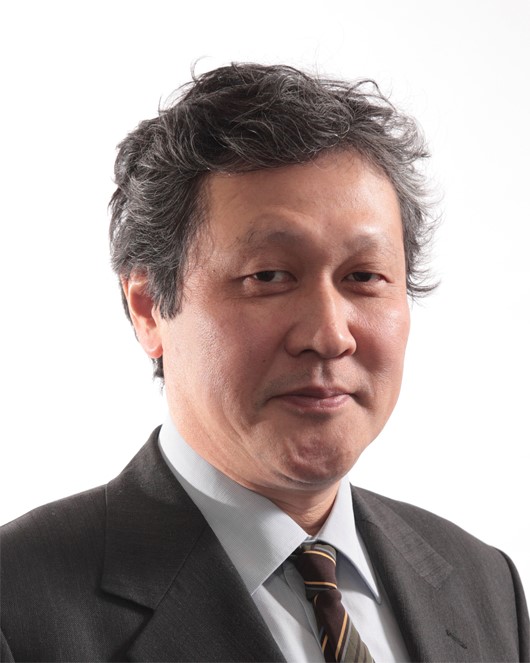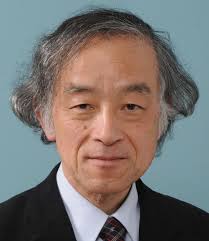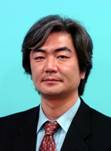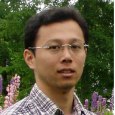Program
Social Cooperation Program Speech:
13:00-13:05
Mamoru Mitsuishi (Dean, Grad. School of Engineering, UT)
13:05-13:10
Takeshi Fukuda (Director, IBM Research - Tokyo)
Guest Speech:
13:10-13:20
Toshiya Watanabe (Director, Policy Alt. Res. Inst., UT)
Plenary talks:
13:20-14:00
Heike Riel (Director, Physical Science, S&T, IBM Research)
"Towards Next Generation of Computing"
14:00-14:40
Kazuyuki Aihara (Professor, Inst. of Industrial Science, UT)
"Bio-inspired Computation by the Uncomputable: Examples of Chaotic and Quantum Neural Networks"
Invited talks:
14:40-15:05
Akira Hirose (Professor, Dept. EEIS, UT)
"Quantum and classical wave processing based on complex-valued neural networks"
15:05-15:30
Spike Narayan (Director, S&T, IBM Research - Almaden)
"Center for Machine Intelligence ? Enabling real time learning"
----- Break (15 min.) -----
15:45-16:10
Tadashi Shibata (Professor Emeritus, Dept. EEIS, UT)
"A Nano-Device-Based Brain System Mimicking the Processing in the Mind"
16:10-16:35
Yasuo Kuniyoshi (Professor, Dept. Mechano-Informatics, UT)
"Simulating Embodied Human Brain Development"
16:35-17:00
Takayuki Osogami (IBM Research - Tokyo)
"Dynamic Boltzmann Machine"
Joint Study Update
17:00-17:20
Gouhei Tanaka (UT)
17:20-17:40
Toshiyuki Yamane (IBM Research - Tokyo)
17:40-18:00
Daiju Nakano (IBM Research - Tokyo)
Closing remark
(* UT= The University of Tokyo)
Plenary speakers
 Heike Riel (IBM Research)
Heike Riel (IBM Research)
Heike Riel is the Manager of the Materials Integration & Nanoscale Devices (MIND) group at IBM Research - Zurich and is responsible for projects in the area of semiconducting nanowires for various applications and molecular electronics. Her research focuses on new materials and novel device concepts for future nanoelectronics in particular steep slope devices for energy efficient computation.
 Kazuyuki Aihara (The University of Tokyo)
Kazuyuki Aihara (The University of Tokyo)
Dr. Kazuyuki Aihara (b. June 23rd, 1954 in Fukuoka, Japan) received the B.E. degree of electrical engineering in 1977 and the Ph.D. degree of electronic engineering 1982 from the University of Tokyo, Japan. Currently, Dr.Aihara is Professor of Institute of Industrial Science, and Graduate School of Information Science and Technology as well as Graduate School of Engineering at the University of Tokyo. He is also Director of Collaborative Research Center for Innovative Mathematical Modelling, the University of Tokyo, and Research Director of FIRST Aihara Innovative Mathematical Modelling Project, the Japan Society for the Promotion of Science (JSPS).
Invited speakers
 Akira Hirose (The University of Tokyo)
Akira Hirose (The University of Tokyo)
Akira Hirose received his Ph.D. degree in electronic engineering from the University of Tokyo in 1991. In 1987, he joined the Research Center for Advanced Science and Technology (RCAST), the University of Tokyo, as a Research Associate. In 1991, he was appointed as an Instructor at the RCAST. From 1993 to 1995, on leave of absence from The University of Tokyo, he joined the Institute for Neuroinformatics, University of Bonn, Bonn, Germany. He is currently a Professor with the Department of Electrical Engineering and Information Systems, the University of Tokyo. The main fields of his research interests are wireless electronics and neural networks. In the fields, he published several books such as Complex-Valued Neural Networks, 2nd Edition (Springer 2012).
 Spike Narayan (IBM Research - Almaden)
Spike Narayan (IBM Research - Almaden)
Dr. Chandrasekhar (Spike) Narayan is presently the Research Division Executive responsible for Science and Technology at IBM Research - Almaden in San Jose, California. He drives both fundamental and applied research and is a leader in managing innovation for the division. Research topics include nanoscale science and engineering, advanced materials development, computation and characterization, storage technologies and materials discovery. More recently he is focusing on the role of physical sciences in the future of IT.
Previously, Dr. Narayan has held several research and management positions in IBM at both Almaden and Watson Research Laboratories and has received many awards for his technical contributions. In addition, he is a Master Inventor within IBM Research and has over 50 US Patents to his credit and is a Member of IBM's Academy of Technology.
Dr. Narayan earned a PhD in Metallurgy and Materials Engineering from Lehigh University, USA.
 Tadashi Shibata (The University of Tokyo)
Tadashi Shibata (The University of Tokyo)
Tadashi Shibata was born in Hyogo, Japan on September 30, 1948. He received the B.S. degree in electronic engineering and the M.S. degree in material science both from Osaka University, Osaka, Japan, and the Ph.D. degree from the University of Tokyo, Tokyo Japan, in 1971, 1973 and 1984, respectively. From 1974 to 1986, he was with Toshiba Corporation, where he worked as a researcher on the R & D of VLSI device and processing technologies. He was engaged in the development of microprocessors, EEPROMs and DRAMs, primarily in the process integration and the research of advanced processing technologies for their fabrication. From 1984 to 1986, he worked as a production engineer at one of the most advanced manufacturing lines of Toshiba. During the period of 1978 to 1980, he was a Visiting Research Associate at Stanford Electronics Laboratories, Stanford University, Stanford, CA, where he studied laser beam processing of electronic materials including silicide, polysilicon, and superconducting materials. From April 1986 to May 1997, he was Associate Professor at the Department of Electronic Engineering, Tohoku University and was engaged in the research and development of ultra-clean technologies. His main interest was in the area of low-temperature processing utilizing very-low-energy ion bombardment for promoting thin-film growth processes as well as in the development of the ultra-clean ion implantation technology to form defect-free ultra-shallow junctions by low-temperature annealing. Since the invention of a new functional device Neuron MOS Transistor (nMOS) in 1989, he has been engaged in the development of new-concept circuits and systems working in analog-digital merged decision-making principle. In May 1997, he became Professor at Department of Information and Communication Engineering, The University of Tokyo. In April 1999, he became Professor at Department of Frontier Informatics, School of Frontier Science, The University of Tokyo. In March 2013, he retired The University of Tokyo. Since April 2013, He is Editor-in-Chief of APEX/JJAP.
 Yasuo Kuniyoshi (The University of Tokyo)
Yasuo Kuniyoshi (The University of Tokyo)
Yasuo Kuniyoshi is a Professor at the Department of Mechano-Informatics, School of Information Science and Technology, The University of Tokyo, Japan. He received B.E. in applied physics, and M.Eng. and Ph.D. in information technology from the University of Tokyo in 1985, 1988 and 1991, respectively. From 1991 to 2000, he was a Research Scientist and then a Senior Research Scientist of Intelligent Systems Division, Electrotechnical Laboratory, AIST, MITI, Japan. From 1996 to 1997 he was a Visiting Scholar at MIT AI Lab., being a member of “ZOO” hosted by Prof. Rodney A. Brooks. In 2001, he joined the University of Tokyo as an associate professor. Since 2005 he has been a Professor there. Since 2012 he has been serving as Director of Social ICT Research Center, School of Information Science and Technology, The University of Tokyo. Also since 2012, he has been jointly appointed as Director of RIKEN BSI-Toyota Collaboration Center (BTCC). His research interests include constructive developmental science, emergence and development of embodied cognition, and humanoid robotics. He is the author of over 500 technical publications, editorials and books. He received Outstanding Paper Award from International Joint Conference on Artificial Intelligence, Best Paper Awards from Robotics Society of Japan, Sato Memorial Award for Intelligent Robotics Research, Okawa Publication Prize, Gold Medal of Tokyo Techno Forum21, and other awards. He is a member of IEEE, Science Council of Japan (affiliate member), Robotics Society of Japan, Japan Society for Artificial Intelligence, Japanese Society of Baby Science, and other societies.
 Takayuki Osogami (IBM Research - Tokyo)
Takayuki Osogami (IBM Research - Tokyo)
Takayuki Osogami is a research staff member at IBM Research - Tokyo. He is currently a group leader of a governmental project supported by CREST, Japan Science and Technology Agency. His group is developing "technologies for optimizing decision making to create values from deep knowledge" as a part of Advanced Core Technologies for Big Data Integration. He develops and applies theory of deep sequential decision making, where a machine learns the individual characteristics of humans for better interaction. He received his Ph.D. in Computer Science from Carnegie Mellon University in August 2005, and a B.Eng. degree in Electronic Engineering from the University of Tokyo in 1998.






